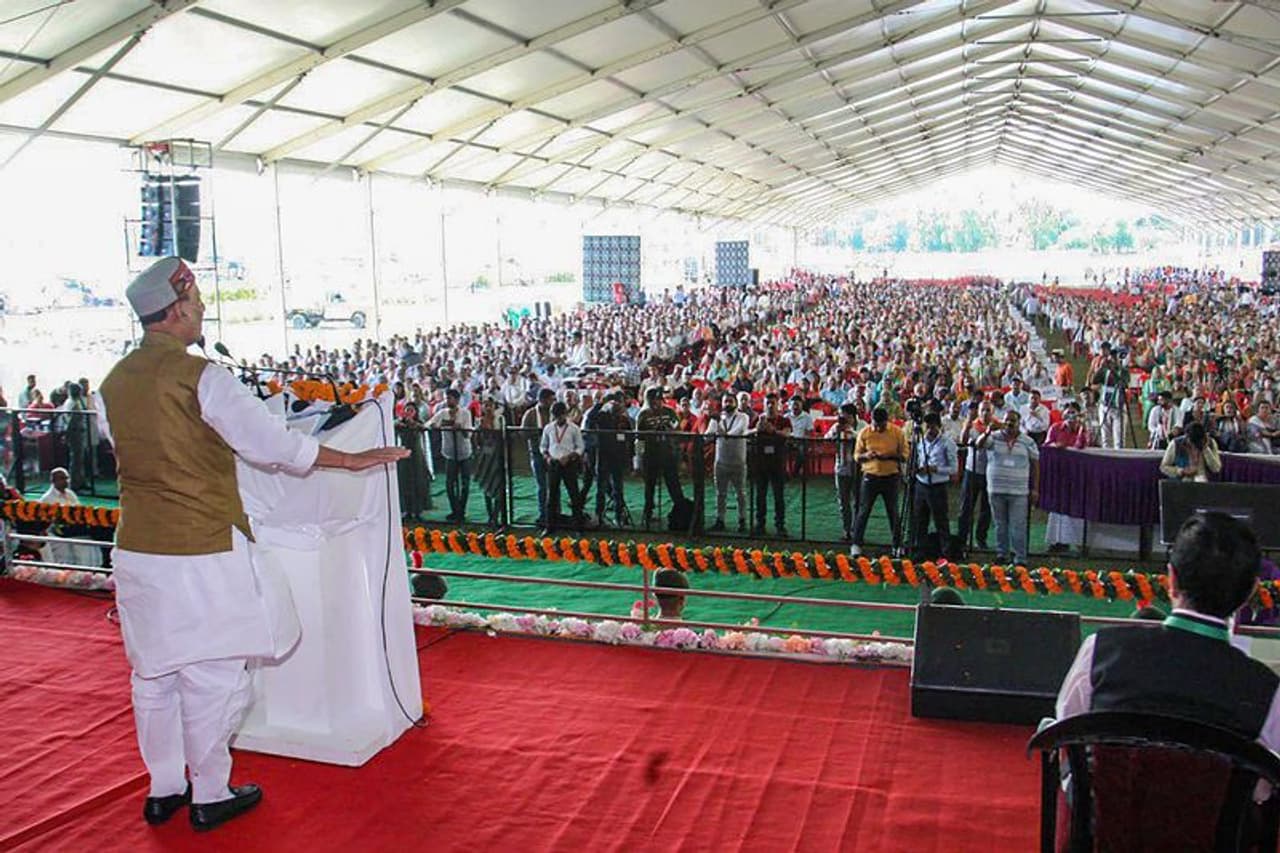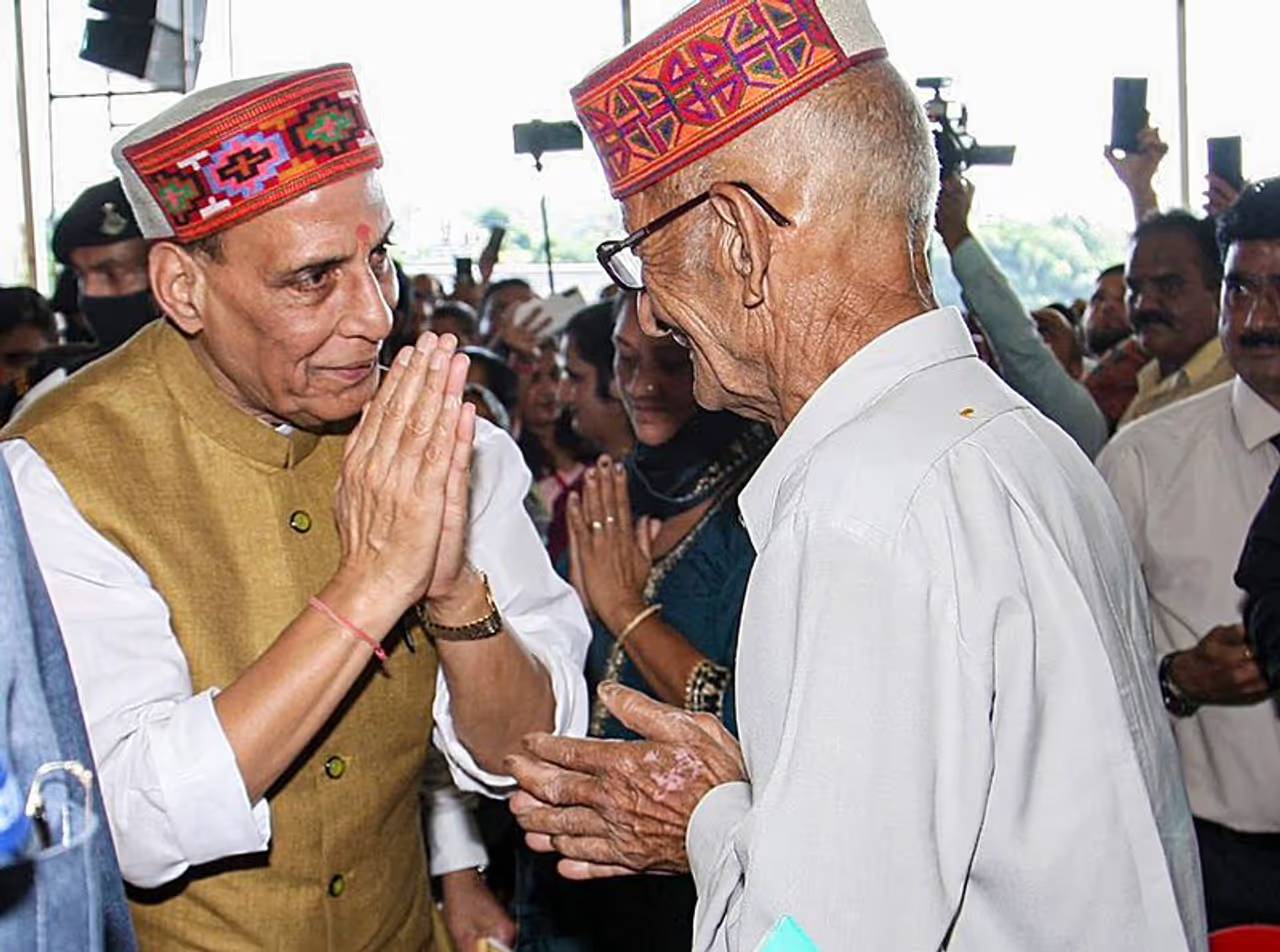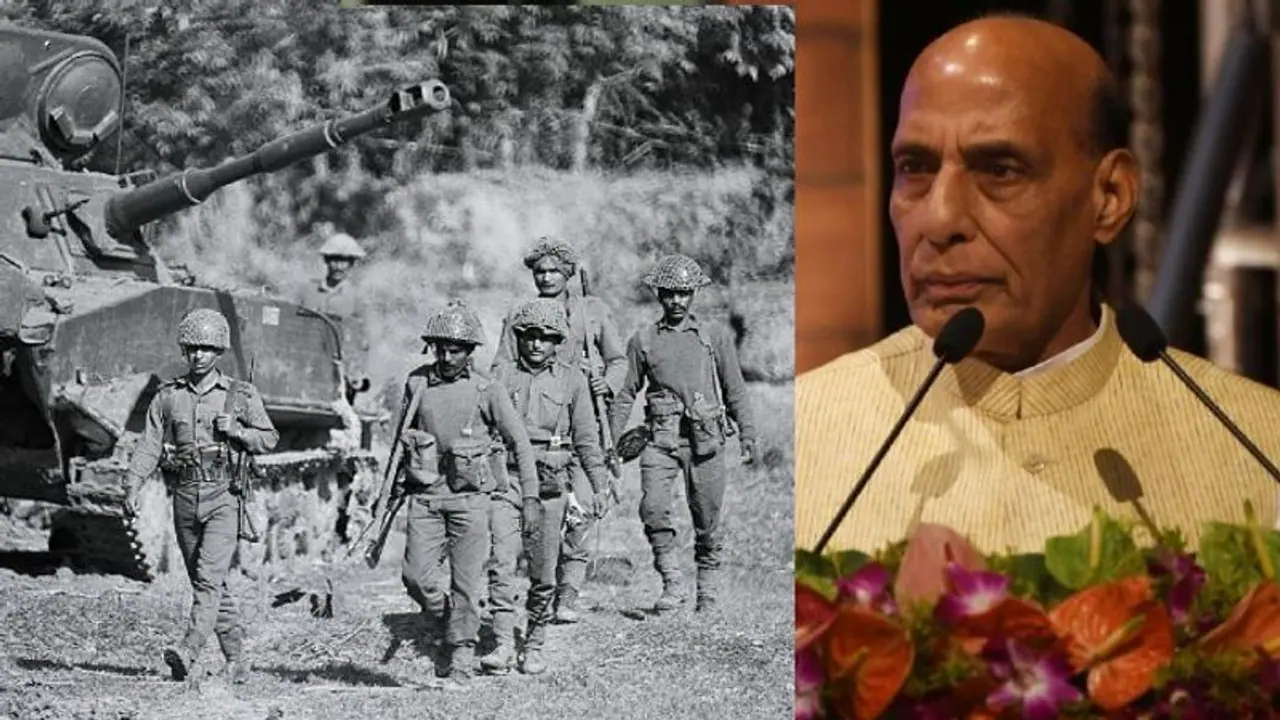Defence Minister Rajnath Singh on Monday said that decision on Pakistan-occupied Kashmir (PoK) should have been taken during 1971 war between India and the neighbouring country.
Rajnath Singh, India's defence minister, stated on Monday that Pakistan-occupied Kashmir (PoK) issue should have been resolved during the 1971 war between India and the neighbouring nation. The defence minister made this statement at a ceremony honouring the families of martyrs in Badoli, Himachal Pradesh's Kangra district.

"We have recently marked the Golden Jubilee of victory of 1971 war. The 1971 war will be remembered in the history as the war fought for the humanity instead of property, possession or power," Singh said.
"There is only one regret. The issue of PoK should have been decided at that time itself," he said.
Also read: Indian Army to buy 47,627 bulletproof jackets that can stop 7.62 mm bullets
Singh also went to a similar event in the Hamirpur district in Nadaun. In Kangra, Singh also discussed the Centre's steadfast commitment to turning the nation into 'Aatmanirbhar' and the advancements made possible by the steps taken to carry out Prime Minister Narendra Modi's vision.

"Earlier, India was known as a defence importer. Today, it is among one of the top 25 defence exporters in the world. From about Rs 900 crore eight years ago, defence exports have crossed Rs 13,000 crore. We are hopeful that the defence exports will touch Rs 35,000 crore by 2025 and the target of Rs 2.7 lakh crore set for 2047 will be met," he said.
He reassured the public that if there is ever an attempt to disturb the peace in India, a suitable response will be provided, although India has never attacked any nation or taken even a small portion of foreign territory.
"India is a peace-loving country, but it should not be mistaken with being coward or afraid of war. At a time when we were dealing with COVID-19, we had to face the tension on the northern border with China. The courage of our soldiers during the Galwan incident proved that no matter how big the power is, India will never bow down," he said.
Also read: Indian Army set to go shopping for 4.25 lakh carbines
According to Singh, two of the most significant reforms made to strengthen the nation's security were the creation of the position of 'chief of defence staff' and the department of military affairs.
"Doors of National Defence Academy (NDA) have been opened for girls, while women in the Armed Forces are being given permanent commission. We have also allowed deployment of women on warships," he said.
Singh emphasised that the government is creating a 'New India' that will instil confidence and security in our friendly, peaceful nations while leaving those with malicious intentions with nothing but dust.
Regarding the airstrikes on Balakot in 2019 and the surgical strikes in 2016, the defence minister claimed that India's new anti-terrorism strategy had broken the backs of those who sought to undermine the unity and integrity of the country.
"Terror activities were carried out from Pakistan under a well-thought-out policy. After the Uri and Pulwama attacks, our government and the Armed Forces, through the 2016 surgical strikes and 2019 Balakot air strikes, displayed to the world India's unwavering commitment to root out terrorism. We showed that our forces have the capability to act on this side and, if needed, on the other side of the border. India's image has been transformed. It is now seriously listened to on international platforms," he said.
Also read: Indian Air Force to retire Abhinandan Varthaman's MiG-21 squadron on September 30: Report
According to the defence minister, India's rapid advancement on the path of development is due to the inspiration received from the heroes of the Armed Forces.
"When the dark clouds of war appear and national interests are attacked, it is the soldiers who bear that attack and protect the country. It is the supreme sacrifice of the fallen heroes which keeps the people alive," he stated.
"The names of General Sam Manekshaw, General Jagjit Singh Arora, General Jacob, General Sujan Singh Uban and General Officer in Command Air Marshal Latif, who led India to a resounding victory, will never be forgotten. Indian soldiers in the war included Hindus, Muslims, Parsis, Sikhs and one Jew. It is proof of India's belief towards Sarvadharma Sambhav (respect for all religions). All these brave soldiers belonged to different states with different mother tongues. They were bound by a strong and common thread of Indianness," he said.

According to Singh, Himachal Pradesh is a border state that is strategically significant to India, and the citizens who live there are strategic assets.
He emphasised that every government must work to improve people's lives while claiming that Prime Minister Modi's administration has given top priority to improving the nation's intelligence and communication capabilities as well as the border infrastructure.
In the border regions, hundreds of kilometres of roads, bridges, and tunnels have been built, with the Atal Tunnel in Himachal Pradesh being one of the major initiatives, he noted.
Also read: Units with English names, machinery, customs... Army reviewing colonial baggage
The country will always be grateful for the sacrifices made by the brave soldiers, Singh said as he paid respect to the families of the fallen soldiers. He claimed that the Armed Forces would forever serve as an example of discipline, loyalty to duty, patriotism, and sacrifice for the people, especially the young. They are also a source of pride and confidence for the country.
"Background, religion and creed don't matter, what matters is that our beloved tri-colour continues to fly high," he said.
The defence minister paid glowing tributes to the war heroes, including first recipient of Param Vir Chakra Major Somnath Sharma (1947); Brigadier Sher Jung Thapa, Maha Vir Chakra (1948); Lt Col Dhan Singh Thapa, PVC (1962); Captain Vikram Batra, PVC (1999) and Subedar Major Sanjay Kumar, PVC (1999).
On this occasion, Singh felicitated the families of the brave soldiers of the Armed Forces hailing from Himachal Pradesh, who laid down their lives in the service of the nation.
(With inputs from PTI)
